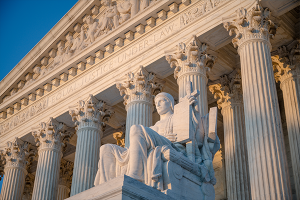On October 19, 2022, a three-judge panel for the U.S. Court of Appeals for the Fifth Circuit ruled that the Consumer Financial Protection Bureau’s (CFPB’s) independent funding stream from the Federal Reserve system was in violation of the Constitution’s Appropriations Clause and separation of powers principles. In Community Financial Services Association v. CFPB, the court vacated a 2017 rule regulating payday lending because the agency promulgated the rule using unconstitutionally requested funds.
The Community Financial Services Association of America and the Consumer Service Alliance of Texas filed the case in 2018, arguing among other claims, that the Bureau’s unique funding scheme of transfers from the Federal Reserve, up to the limits set forth in Dodd-Frank, were unconstitutional based on the Bureau’s lack of review by Congress’s appropriations committees. The court held that “without [the CFPB’s] unconstitutional funding, the Bureau lacked any other means to promulgate the rule… the Bureau’s unconstitutional funding structure… literally effected the promulgation of the rule.” As a result, the court vacated the payday lending rule.
When the case of Seila Law v. CFPB was litigated in 2020, NAR submitted an amicus brief along with Mortgage Bankers Association and the National Association of Homebuilders, advocating that any remedy provided by the Court be the least disruptive - by severing any unconstitutional provisions from the Dodd-Frank Act, rather than striking down the entire statute. In that case, the Court followed that narrow approach and struck only the director's unconstitutional “for-cause” removal restrictions from Dodd-Frank, allowing the bureau’s rulemaking, supervision, and enforcement actions to remain intact.
The CFPB will continue to operate during the litigation, however, based on this court’s analysis, it is possible that all Bureau activity could be challenged. Furthermore, states may be empowered to take on more investigative and enforcement action until more certainty is provided by the courts or Congress. Should the agency be subject to congressional appropriations in the future, operations could be limited. The CFPB is expected to request a stay of the decision and petition the Fifth Circuit for an en banc review.
Stay tuned to nar.realtor/respa for the latest.












